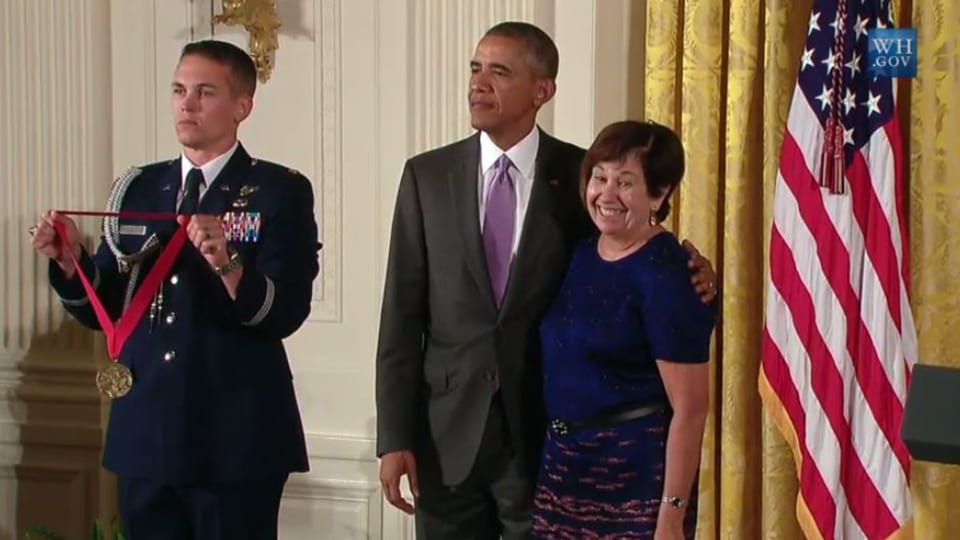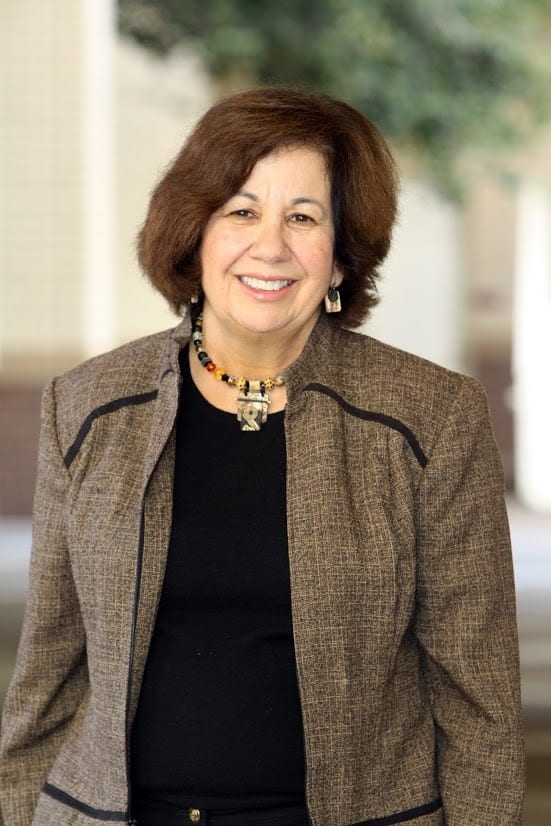Historical perspective
Vicki Ruiz integrates storytelling, conventional research to shed new light on American history

For Vicki Ruiz, history begins with storytelling – stories learned from her mother and grandmother around the kitchen table, stories gleaned from books in her neighborhood bookmobile, stories gathered personally from eyewitnesses to 20th-century American history.
Ruiz writes these stories, recounting, for example, the lives of the Mexican cannery women in Southern California. And she tells these stories, enthusiastically launching into a series of oral narratives. There’s the tale of the pioneering California woman whose Spanish land grant – Rancho Rodeo de las Aguas – was transformed by enterprising developers into Beverly Hills. There’s the saga of Los Tomboys, 1947 Orange County Latina “league-of-their-own” softball champs. And there’s the account of Gonzalo Mendez, a Westminster, Calif. parent, whose legal challenge led to the desegregation of the state’s public schools eight years before the U.S. Supreme Court’s Brown v. Topeka Board of Education.
Professor of history and Chicano/Latino studies and director of UCI’s Humanities Out There (HOT) outreach program, Ruiz integrates oral history and conventional archival sources to personalize her work, connect past and contemporary issues and, above all, make history accessible. Her efforts have earned her a presidential nomination to the National Council on the Humanities and Latina magazine’s “Woman of the Year” award in 2000. She currently serves as president of the prestigious Berkshire Conference of Women Historians. At the forefront of a new generation of historians who view history in broad cultural and social contexts, she sees, in the words of artist and poet William Blake, “a world in a grain of sand.”
Ruiz examines not just sand kicked up by great people and great forces, but sand tracked in on the kitchen floor as well. She points out, for example, that since the 1540s countless diaries, letters, court records and family experiences have traced the history of Latinas in the American West. Little of those legacies has made it into the history books. But with Ruiz’s help, that oversight is being corrected.
“Vicki Ruiz essentially created her field – the study of Mexican-American women in the U.S. Southwest and on the Pacific Coast – and won acceptance for it among American scholars,” says Kenneth Pomeranz, chair of UCI’s history department. “More broadly, she stands as a major contributor to labor history, women’s history, immigration history and the history of the American West. Her work has been pathbreaking in the new topics it raised for study and in the new light it cast upon the larger fields of U.S. and Mexican history.”
MODEST BEGINNINGS
Ruiz did not set out to break new ground. Growing up in Florida, she planned to become a high school history teacher after completing her bachelor’s at Florida State University. Even though she was elected to Phi Beta Kappa and graduated summa cum laude from FSU, when a professor urged her to consider graduate school, she responded, “You have to be rich and smart to go to graduate school. I’m neither rich nor smart.”
Eventually, Ruiz was persuaded to apply to several universities. Impressed by a personal appeal from then-assistant professor Albert Camarillo of Stanford’s history department, she enrolled in graduate school and became the fourth Mexican-American woman in the United States to receive a doctorate in history. She was Stanford’s first doctorate in this field.
After spending time in Mexico with Luisa Moreno, the first Latino to hold national office in a U.S. labor union, Ruiz decided to focus her dissertation on Southern California’s cannery workers.
“As I wrote my dissertation,” she recalls, “I wondered, ‘Can I do this? It’s so difficult.’ Then I thought about my mother who, at age 13, went to work at a doughnut shop to support her mother and two sisters. She went to school at night, then worked as a ‘Rosie the Riveter.’ When I attended Stanford, she and my father did without so they could send money every month. My mother always emphasized education – the education she felt she could never get for herself.”
Ruiz’s doctoral dissertation and first book. Cannery Women, Cannery Lives: Mexican Women, Unionization and the California Food Processing Industry, 1930-1950, launched her career. Since then, her impressive professional experiences have included serving as director of the Institute of Oral History at the University of Texas, El Paso, professor of history at UC Davis and chair of Chicano studies at Arizona State University. She also held an endowed chair and chaired the history department at Claremont Graduate University.
Ruiz is the author of several award-winning books. As part of a team of distinguished scholars from across the nation, she recently completed Created Equal: A Social and Political History of the United States. With co-editor Virginia Sanchez-Korrol, she is creating an historical encyclopedia of Latinas in the United States – a scholarly reference work she hopes readers also will peruse for pleasure.
NEW GENERATIONS
UCI’s strong emphasis on educational outreach influenced Ruiz’s decision to join the School of Humanities. Through the HOT partnership program in Santa Ana K-12 schools, she teaches oral history techniques to a new generation of students. In tandem with classroom study of Homer’s Odyssey, middle-school students trace the journeys their own families made to this country. While high school students study Steinbeck’s The Grapes of Wrath, they interview local elders about the Great Depression.
“I want to see HOT get out of the classroom and make connections with the community,” Ruiz says. “I believe our obligations as members of the university do not end at the campus parking lot. As citizens, we have a responsibility to a larger community.”

